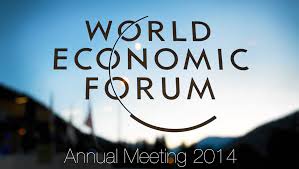A global survey of young people across 186 countries around the world has shown that it is not only in Nigeria that the younger generation are concerned by corruption, inequality, and lack of economic opportunities but world wide. A survey conducted by World Economic Forum released in Geneva titled Global Shapers Annual Survey 2017 report has shown how young people see the world; and what they want to do about it. Over 31,000 people aged between 18 and 35 responded, giving insights into their views on society, business, politics, the economy and technology as well as their workplace and career aspirations.
The report said “with over 50 per cent of the world’s population under the age of 30, it is of concern that young people perceive decision-makers as not listening to them before decisions are made. By its sheer size, the current youth generation is already influential. And that influence is set to grow as they come to occupy a larger proportion of the workforce and voter base, as they become employers and as their consumer spending grows. Decision-makers who read the Shapers Survey and act on it are already taking a step in the right direction. In addition to indicating that their views are not being considered sufficiently before important decisions are taken, young people also suggest concrete ways to listen to youths, both in society – especially for government – and at work”.
According to the report “Climate change and the environment remain the top global concerns revealed in this survey for the third year in a row. Young people weigh in on whether science has made the case for climate change and indicate their thoughts about the Sustainable Development Goals, also disclosing whether they know what the SDGs are. Of the challenges “closer to home”, corruption is not only a top national issue on its own, but according to young people it is the top driver of inequality. It is also a priority issue at the workplace, both with colleagues and managers – with young people valuing integrity and honesty above all other characteristics from the leaders in their country, including employers.
These results are particularly strong in some regions. Furthermore, young people provide action- oriented solutions for decision-makers to address this issue, including providing specific examples of the kinds of penalties that the public officials who are corrupt deserve. And for those who are curious, the annual trust barometer has some interesting insights, with three types of organisations standing out as “trusted” while, unfortunately, national governments continue to lead the list of the most distrusted organisations.
With over 50% of the world’s population under the age of 30, it is of concern that young people perceive decision-makers as not listening to them before decisions are made. The lowest agreement level is from the Sub-Saharan African region, with only 49.6% of respondents who “strongly agree”. The difference is also striking between different income-level economies. In the low-income category, only 37.8% “strongly agree”, while across other income-level groups this number is not less than 71%.
Corruption remains a major local issue in 2017. This year again, “government accountability and transparency/corruption” ranked 1st with 46.9% of votes globally. It is followed by “inequality” (38.1%) and “lack of economic opportunity/employment” (30.5%). Several interesting trends can be observed. The Oceania region is the only region where “climate change/destruction of nature” continues to be the top choice (63.3%) both globally and at the country level. For Australia and New Zealand (238 respondents), climate change is more than a global issue; it is something that affects young people in their everyday life and that is already affecting their future and immediate environment.
Corruption is not only a serious issue affecting countries, it is also identified as the overall major source of inequality, according to the answer to the question: “What are the most important factors contributing to inequality in your country?” It is ranked 1st with 48.6% of votes. “Income” is ranked 2nd (43.2%), followed by “access to good quality education” (38.8%) and “discrimination against race, religion, gender, etc.” (35.5%). The “ flow of migrants appears in 10th place with 9.5% of votes. These concerns reveal a desire for stability and security as well as a more equal society.
However, determinants of inequality by region varied greatly; “corruption” has the lowest scores in both Europe and North America. In fact, for Europe, “income” inequality ranks highest (55%), followed by “discrimination” (36.3%) and “government taxes and policies” (31.1%). For North America, “discrimination” is the number one source of inequality (64%), followed by “income” (46.4%) and “access to good quality education” (38.1%). These observations correlate well with the results by income level. That is, in all income-level categories except for high income, “corruption” is selected as the main source of inequality, followed by either “income” or “access to good quality education”.
In the high-income category, “income” is rated highest, followed by “discrimination” and “access to good quality education”. “Corruption” only comes in 4th place.
With these differences in mind, the question as to what type of discrimination causes the most harm is interesting. Overall, “income” ranks 1st with 29.8% of answer choices, a rather small number indicating an important diversity of responses. “Access to resources” comes 2nd with 19.7% of votes followed by “race” (15.8% of votes). The structure of this troika is best explained in terms of regional differences. “Income” is in the top three answer choices in all regions (from 17.5% in North America to 43.8% in Eurasia).

